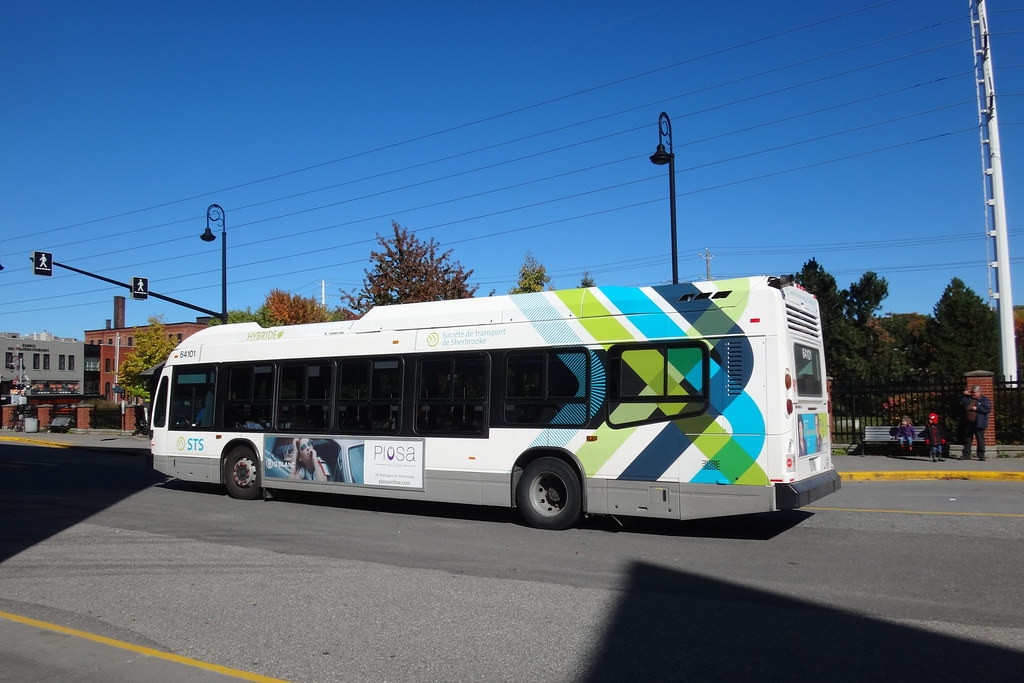The ongoing labour dispute in Sherbrooke, Quebec, continues to impact the city’s transportation system as bus drivers threaten strikes amidst stalled contract negotiations. The drivers, represented by the Syndicat des chauffeurs et chauffeuses de la STS, are demanding better working conditions and wages, arguing that they are being underpaid and undervalued by the City of Sherbrooke.
The conflict has reached a critical point, with the drivers expressing their frustration over the lack of progress in negotiations. Their most recent offers have been rejected by the union, who believe the proposed terms are inadequate and do not reflect the difficulties they face on the job. The drivers feel their contributions are overlooked, and their struggle to provide a reliable public transportation system is not being acknowledged.
One of the main sticking points in the negotiations is the issue of wages. Maxime Leroux, the union president, criticized the latest offer from the Société de transport de Sherbrooke (STS), claiming that drivers would be better compensated working at a fast-food chain. He highlighted the demanding nature of their work, including long hours and the need to be on call for extra shifts, which he believes warrants higher pay. The drivers also raised concerns about the lack of recognition for their commitment to providing a vital service to the community.
The potential impact of a strike on the city's transportation system is significant, with the STS announcing preparations for the possibility of service disruptions. The drivers have indicated that they are prepared to take action, with plans for partial strikes in the coming weeks, affecting the public transportation network.
The drivers' actions highlight a broader issue of the perceived lack of respect and recognition for public transit workers across Canada. While their work is essential to the functioning of cities and communities, they often face challenging working conditions and low wages. This situation in Sherbrooke reflects a broader trend of undervaluing the vital role of public transportation workers.
In the midst of this escalating situation, the city officials face a critical choice. They must acknowledge the importance of the bus drivers and address their concerns. Failure to do so could have severe repercussions for the city's transportation system and impact the lives of thousands of residents who rely on public transit.
The City's Response
The STS has maintained that it is committed to reaching a fair and equitable agreement with the union and that its offers are competitive. However, The union remains unconvinced, arguing that the city has not shown a genuine commitment to addressing the drivers' concerns. The union has called for the city to prioritize the needs of its bus drivers, who they believe are integral to the city's well-being.
A Growing Trend
The conflict in Sherbrooke is not an isolated incident. Across Canada, public transit workers are struggling for better working conditions and fair wages. In recent years, there have been a number of strikes and protests by bus drivers and other transit workers, demonstrating a growing trend of dissatisfaction and disillusionment with their employers. This trend highlights the need for a greater focus on improving the working conditions and compensation of public transit workers, who play a crucial role in ensuring the smooth functioning of cities.
A Call for Action
The situation in Sherbrooke serves as a stark reminder of the importance of recognizing and valuing the work of public transit employees. It is imperative for cities and transit authorities to prioritize the needs of their transit workers, ensuring they are adequately compensated for their vital role in keeping communities connected. Failure to do so will likely lead to further labour disputes and disruptions to public transportation services, impacting the lives of countless people who rely on these services.
A Lesson for the Future
The events in Sherbrooke serve as a valuable lesson for cities and transit authorities across Canada. It emphasizes the need for proactive engagement with transit workers, addressing their concerns and fostering a respectful and collaborative working environment. By doing so, cities can avoid costly labour disputes and ensure the continued smooth operation of vital public transportation systems, benefiting both workers and the communities they serve.

















